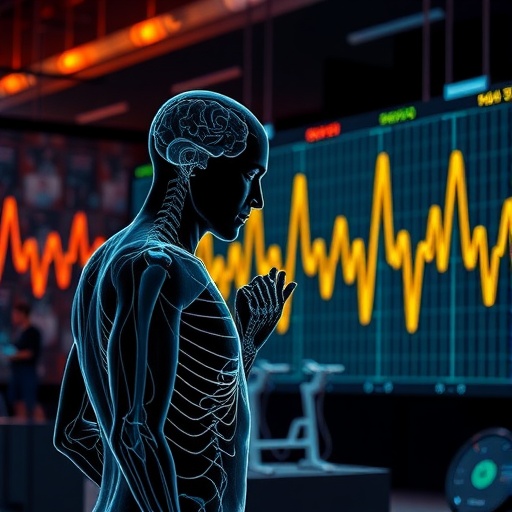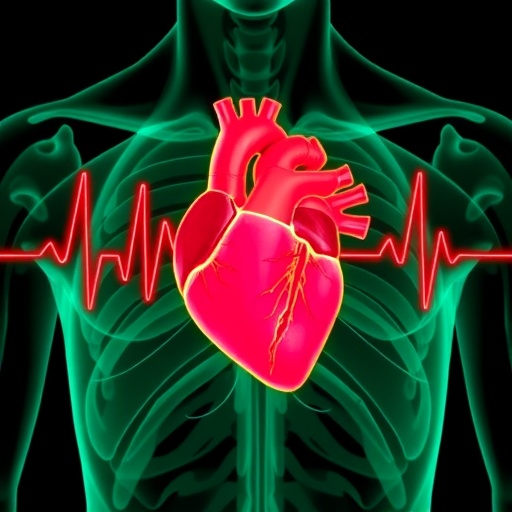
In the ever-evolving landscape of health technology and education, a remarkable study titled “Hands-On Mastery in Physiological Signal Processing: A Challenge-Based Learning Approach” sheds light on innovative teaching methodologies. Conducted by researchers Ãscar Barquero-Pérez, Miguel Cámara-Vázquez, and Rubén Goya-Esteban, this research investigates the effectiveness of challenge-based learning in the domain of physiological signal processing. As the medical field increasingly turns to complex data analysis, its integration into educational systems becomes paramount. This exploration promises to revolutionize how we understand and harness physiological data.
Physiological signal processing is a critical component in biomedical engineering, wherein professionals analyze various biosignals to garner insights into human health. This signals include electrocardiograms (ECGs), electromyograms (EMGs), and brain activity signals, among others. Understanding and processing these signals accurately can be the difference between early detection of diseases and potentially life-saving interventions. Yet, mastering these skills is often bogged down by traditional teaching methods that prioritize rote memorization over practical application. The study addresses this challenge head-on.
The research highlights that traditional educational frameworks often lack engagement and real-world relevance. Students frequently struggle with theoretical concepts due to inadequate exposure to practical applications. The result is a disconnect between what they learn in the classroom and what they face in real-world scenarios. This gap can lead to difficulties in applying theoretical knowledge to clinical situations, underscoring the need for a more interactive and hands-on approach in education.
The challenge-based learning approach proposed in this research aims to bridge this gap. By presenting students with real-world problems that require the application of physiological signal processing principles, educators can enhance engagement and understanding. This method focuses on experiential learning, where students are encouraged to collaborate, innovate, and think criticallyâall essential skills in todayâs healthcare landscape. The hands-on aspects of this approach enable students to directly interact with physiological data and tools, fostering deeper comprehension of the subject matter.
A pivotal component of their study involves evaluating the impact of this methodology on students’ learning experiences. Barquero-Pérez and his colleagues implemented a series of challenges simulating real-life situations that clinical engineers might encounter. Students were tasked with analyzing physiological signals and proposing solutions to problems that could arise in diagnostic settings. This not only encouraged teamwork but also mimicked the collaborative nature of real-world healthcare environments.
The results of the study were profound. Students reported a significant increase in their confidence and abilities to process physiological signals. They expressed that the challenges were not only intellectually stimulating but also fun, making the learning process far more enjoyable. This cultivates a positive association with the subject matter, and engagement is further bolstered by the opportunity to work with cutting-edge technologies and tools that professionals use in the field.
Furthermore, the study presents data supporting improved academic performance when challenge-based learning is utilized. Students who participated in this innovative curriculum scored higher on assessments, demonstrating enhanced understanding and retention of physiological signal processing concepts. This indicates that engaging students through practical application largely contributes to their educational success.
The implications of the research extend beyond just educational environments. The challenge-based approach could transform professional training in clinical settings. As healthcare evolves, continuous education remains vital for existing professionals. Integrating such methodologies into ongoing training programs can keep practitioners at the forefront of their field, ensuring they remain well-rounded and technically proficient in handling physiological data.
Additionally, the findings raise considerations about curriculum design in biomedical engineering and related fields. Educational institutions could adopt this dynamic model, ensuring that the future generations of health professionals are well-equipped to face the technological advances and challenges that lie ahead. This could lead to a more adaptive workforce that is ready for the complexities of modern healthcare.
Critically, the study emphasizes the importance of interdisciplinary collaboration. Students in the challenge-based learning environment often come from diverse educational backgroundsâengineering, physics, biology, and information technology. Working in diverse teams not only enriches the learning experience but also cultivates multidisciplinary perspectives essential for tackling complex healthcare challenges.
Moreover, researchers advocate for more statistically substantial studies to further validate the findings across various institutions. While the immediate results are encouraging, broader implementation would help ascertain the long-term benefits of challenge-based learning within the field of biomedical engineering. Future studies could also explore the sustainability of engagement and academic performance over multiple academic terms.
In a world increasingly driven by data, the need for effective education in signal processing cannot be overstated. As medical technology continues to leech into everyday practice, equipping students and professionals with robust training in these skills is paramount. Challenge-based learning is more than a novel approach; it represents a shift towards a more holistic and practical understanding of physiological data, promoting a new generation of health professionals who are ready to innovate and excel.
The research signifies a hopeful turning point in medical education. By fostering skills through hands-on experiences and real-world applications, students and professionals alike can engage with their work more deeply. The ultimate goal is to transform how physiological signal processing is taught, ensuring that learners not only grasp theoretical frameworks but can also apply them effectively in clinical settings, ultimately enhancing patient care outcomes.
The journey to innovate educational practices never ceases, and as technology progresses, so too must our teaching methodologies. This study by Barquero-Pérez, Cámara-Vázquez, and Goya-Esteban serves as a compelling call to action for educators and institutions to reassess and revolutionize their pedagogical strategies in biomedical fields.
Subject of Research: Educational methodologies in physiological signal processing.
Article Title: Hands-On Mastery in Physiological Signal Processing: A Challenge-Based Learning Approach.
Article References:
Barquero-Pérez, Ã., Cámara-Vázquez, M. & Goya-Esteban, R. Hands-On Mastery in Physiological Signal Processing: A Challenge-Based Learning Approach.
Biomed Eng Education (2025). https://doi.org/10.1007/s43683-025-00169-7
Image Credits: AI Generated
DOI: 10.1007/s43683-025-00169-7
Keywords: physiological signal processing, challenge-based learning, medical education, hands-on experience, biomedical engineering, data analysis, healthcare training.
Tags: biomedical engineering education strategieschallenge-based learning in educationengaging students in medical data analysisenhancing student engagement in health technologyhands-on mastery in biosignal processingimportance of electrocardiograms in health monitoringinnovative teaching methodologies in health techovercoming traditional learning barriersphysiological signal processing techniquespractical applications of biosignal analysisreal-world relevance in medical educationrevolutionizing physiological data understanding




